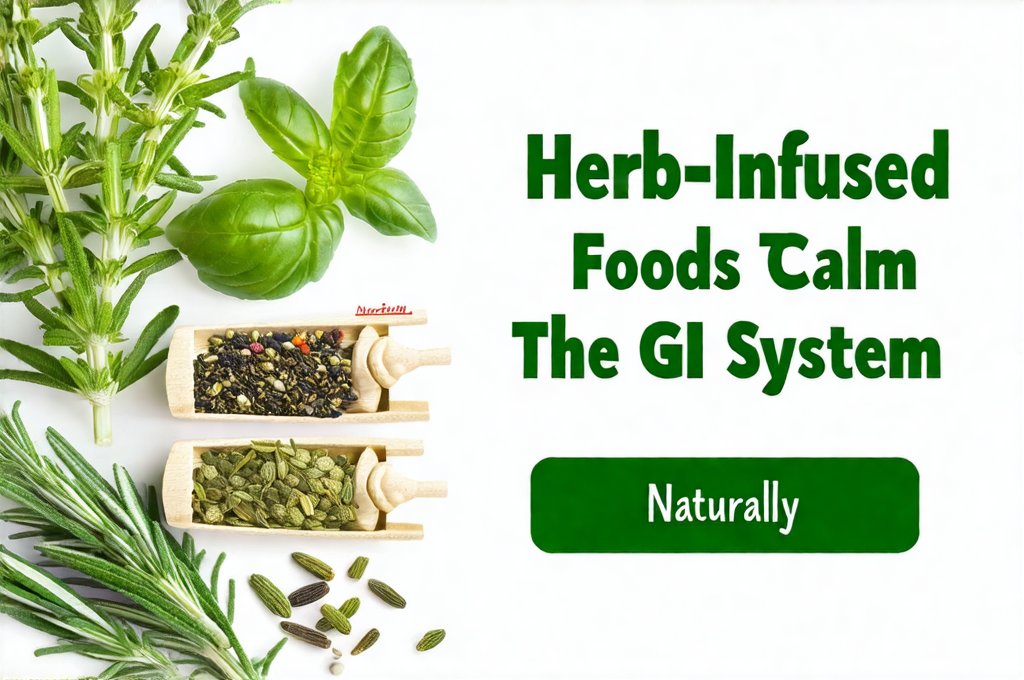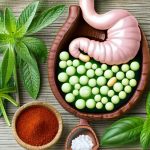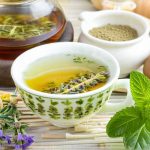Digestive discomfort is an unfortunately common experience. Bloating, gas, indigestion, and even more serious issues like Irritable Bowel Syndrome (IBS) can significantly impact quality of life. Many turn immediately to over-the-counter remedies, but a growing number are discovering the gentle power of incorporating specific herbs into their diet as a natural way to soothe and support gut health. For centuries, traditional medicine systems have utilized herbal remedies for digestive complaints, recognizing the intrinsic link between what we eat and how our bodies process it. This isn’t about quick fixes; it’s about fostering a more harmonious relationship with your digestive system through mindful nourishment.
The modern diet often lacks the subtle nuances of nutrients and compounds that support optimal digestion. Processed foods, stress, and lifestyle factors can all contribute to imbalances within the gut microbiome – the complex ecosystem of bacteria residing in our intestines. This imbalance can manifest as digestive distress. Herbs offer a way to reintroduce natural elements that promote balance, reduce inflammation, and encourage healthy motility. Importantly, understanding individual sensitivities is paramount; what works wonderfully for one person may not be suitable for another. We’ll explore how strategically incorporating certain herbs into your meals or beverages can gently nudge your digestive system towards greater comfort and resilience. Consider first learning how to identify foods that calm the gut, as this will help you understand your sensitivities.
The Soothing Power of Mint & Chamomile
Mint, particularly peppermint, has a long-standing reputation as a digestive aid. Its primary active compound, menthol, is believed to relax the muscles in the intestinal tract, easing spasms and reducing bloating. This makes it incredibly useful for individuals experiencing IBS symptoms or general indigestion. A simple cup of peppermint tea after a meal can be remarkably effective. Chamomile, on the other hand, offers a different kind of support. It’s known for its calming properties – not just mentally, but physically within the digestive system. The compounds in chamomile are thought to reduce inflammation and soothe the gut lining. Combining mint and chamomile creates a synergistic effect, offering both immediate relief from discomfort and long-term support for overall gut health. For those seeking further comfort, exploring foods that calm the stomach is also beneficial.
The beauty of these herbs lies in their versatility. You can incorporate them into your diet in numerous ways beyond just tea. Fresh mint leaves can be added to salads, smoothies, or even infused into water for a refreshing digestive boost. Chamomile flowers can be used to make herbal infusions, added to bath soaks (which indirectly reduce stress and therefore support digestion), or even incorporated into baked goods – though the benefits are lessened with baking due to heat degradation. It’s vital to source high-quality herbs from reputable suppliers to ensure purity and potency. Organic options are generally preferred to avoid pesticide residue.
Consider these practical applications:
– Peppermint tea after meals for bloating and indigestion.
– Chamomile infusion before bed to reduce stress and promote restful digestion.
– Mint sprigs in salads or as a garnish for improved digestive function.
– A chamomile bath to soothe both mind and gut.
– Carefully incorporating dried chamomile flowers into homemade granola (in small amounts).
Ginger: The Digestive Fire Starter
Ginger is arguably one of the most well-known herbs for digestive health, and with good reason. Its active component, gingerol, has potent anti-inflammatory properties and can help accelerate gastric emptying – meaning food moves through your system more efficiently. This is particularly helpful for individuals who experience nausea, bloating, or slow digestion. Ginger isn’t just about relieving symptoms; it also stimulates the production of digestive enzymes, aiding in the breakdown of food and improving nutrient absorption.
Ginger’s versatility makes it a kitchen staple. Fresh ginger can be grated into stir-fries, added to smoothies, or brewed into a warming tea. Ground ginger is a convenient addition to baking and spice rubs. Ginger ale, while often marketed as a digestive aid, frequently contains high levels of sugar which can negate its benefits; opting for homemade ginger beer using natural sweeteners is a much healthier alternative. A simple ginger compress – applying a warm, ginger-infused cloth to the abdomen – can also provide soothing relief from discomfort. It’s important to understand how everyday foods inflame the lower esophageal sphincter before incorporating ginger, as it could exacerbate certain conditions.
However, it’s important to note that ginger can be stimulating. Individuals with heartburn or acid reflux should use it cautiously and in smaller amounts, as it may exacerbate symptoms for some. Start with small doses and monitor your body’s response. The key is finding the right balance for your individual needs.
Fennel: A Gas-Busting Champion
Fennel, often overlooked, is a true unsung hero in the world of digestive health. Both the bulb and seeds of the fennel plant have been traditionally used to relieve bloating, gas, and indigestion. The compounds in fennel are believed to relax the muscles in the intestinal tract, allowing trapped gases to pass more easily. Unlike some other herbs, fennel doesn’t just mask symptoms; it actively addresses the root cause – excessive gas production.
Fennel seeds can be chewed directly after meals (a traditional practice), added to bread recipes, or brewed into a soothing tea. The bulb of the fennel plant has a mild anise-like flavor and can be roasted, grilled, or sliced thinly into salads. Incorporating fennel into your diet is particularly beneficial for individuals who struggle with post-meal bloating or IBS symptoms related to gas.
A simple remedy is to simmer one teaspoon of fennel seeds in a cup of water for 10 minutes, then strain and drink the infusion after meals. Fennel also complements other digestive herbs nicely; combining it with mint or ginger can create a powerful synergistic effect. Always source organic fennel seeds when possible, as conventional farming practices may involve pesticide use. A healthy gut is often achieved by restoring pH balance.
Turmeric: The Anti-Inflammatory Powerhouse
Turmeric, renowned for its vibrant color and potent health benefits, is increasingly recognized for its role in supporting digestive health. Its active compound, curcumin, possesses powerful anti-inflammatory properties that can help soothe the gut lining and reduce inflammation associated with conditions like IBS and Crohn’s disease. Chronic inflammation is often a key driver of digestive discomfort, making turmeric an invaluable addition to a holistic approach to gut health.
However, curcumin has low bioavailability – meaning it’s not easily absorbed by the body on its own. Pairing turmeric with black pepper significantly enhances absorption, as piperine in black pepper increases curcumin’s effectiveness. Incorporating healthy fats alongside turmeric also improves absorption. This means adding a pinch of black pepper and a drizzle of olive oil when using turmeric in your cooking or supplements.
Turmeric can be added to smoothies, soups, stews, curries, or even brewed into a warming “golden milk” beverage with spices like ginger and cinnamon. Golden milk is not only delicious but also provides a potent dose of anti-inflammatory compounds. Remember that consistency is key; incorporating turmeric into your diet regularly will yield the most significant benefits over time. It’s important to note that individuals on blood thinners should consult their healthcare provider before consuming large amounts of turmeric, as it may have mild anticoagulant effects. If you struggle with acidity, consider foods that neutralize stomach acid.
It’s crucial to remember that herbal remedies are not a substitute for professional medical advice or treatment. If you are experiencing persistent digestive issues, consult with a qualified healthcare practitioner to rule out any underlying medical conditions. These herbs offer a gentle and natural way to support your gut health, but they should be used as part of a holistic approach that includes a balanced diet, stress management, and regular exercise. Listen to your body, experiment with different herbs, and find what works best for you. Understanding foods that relax the LES is also important for overall digestive health. Finally, consider naturally detoxing the gut.


















